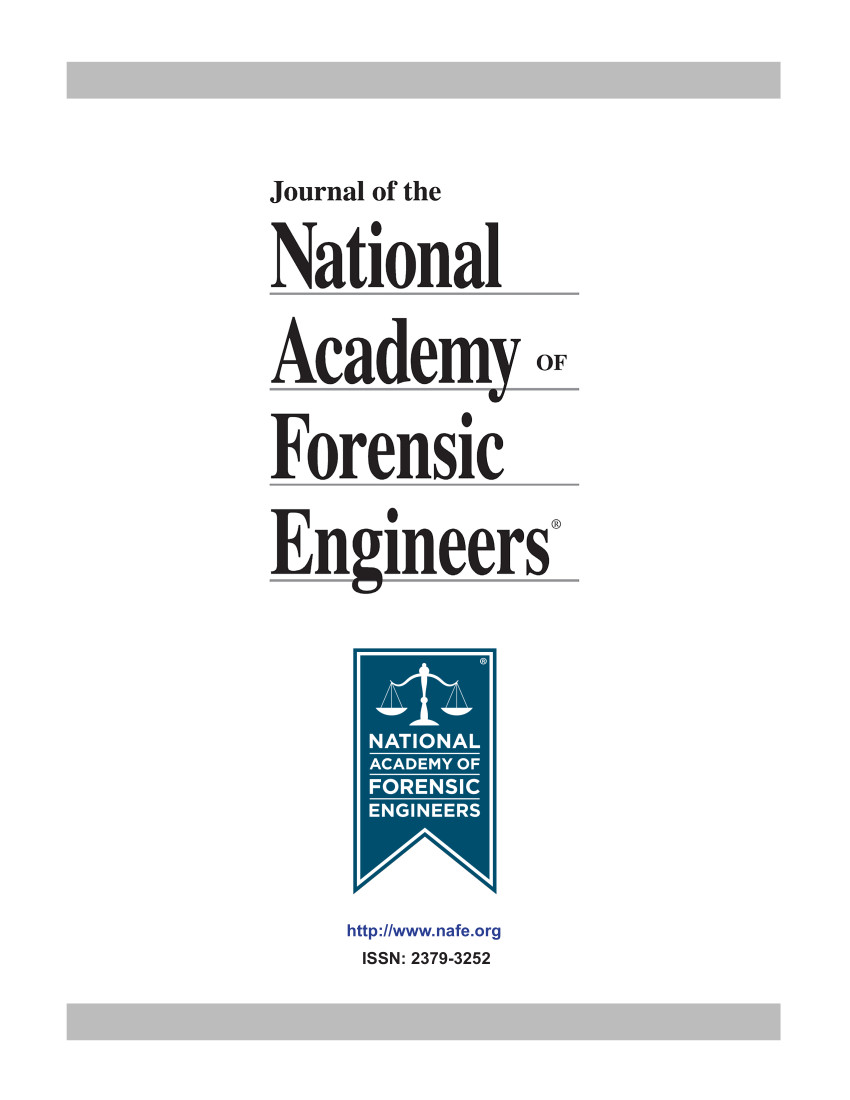The Forensic Engineer as the Comprehensivist
DOI:
https://doi.org/10.51501/jotnafe.v3i2.411Abstract
Are you a comprehensivist ? As a forensic engineer, are you sometimes asked to be a comprehensivist? Should you aspire to be one? A comprehensivist is one who has a practical, working knowledge of many things. The term was coined by R. Buckminster Fuller and was taken from the educational philosophy of the U. S . Naval Academy. Training of future naval officers included the premise that some of the officers would eventually become admirals. An admiral might find himself as far away from home as he could get, which at that time, was half way around the world. An admiral might need to make decisions regarding any and all things such as religion, politics, science, engineering, etc. Hence, the broader and more comprehensive his training, the better he may be able to cope with being the final authority on a wide range of responsibilities. There is much to be said for sticking to your own field of expertise, for not getting in over your head and for not professing competence in areasPublished
1986-01-01
How to Cite
Forney, Bill E. 1986. “The Forensic Engineer As the Comprehensivist”. Journal of the National Academy of Forensic Engineers 3 (2). https://doi.org/10.51501/jotnafe.v3i2.411.
Issue
Section
Articles
License
Copyright (c) 1986 National Academy of Forensic Engineers

This work is licensed under a Creative Commons Attribution-NoDerivatives 4.0 International License.
All rights © Journal of the National Academy of Forensic Engineers.
Full statement regarding the author's license of copyright to the NAFE is shown on the Copyright section of the Submissions Page.






